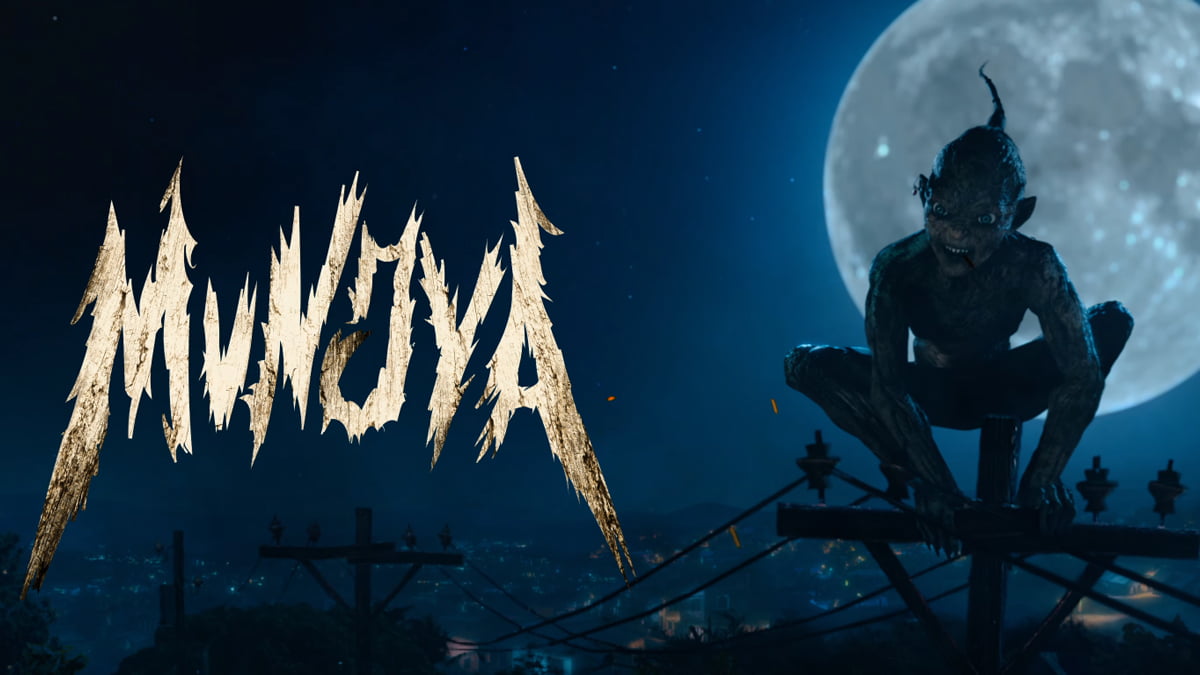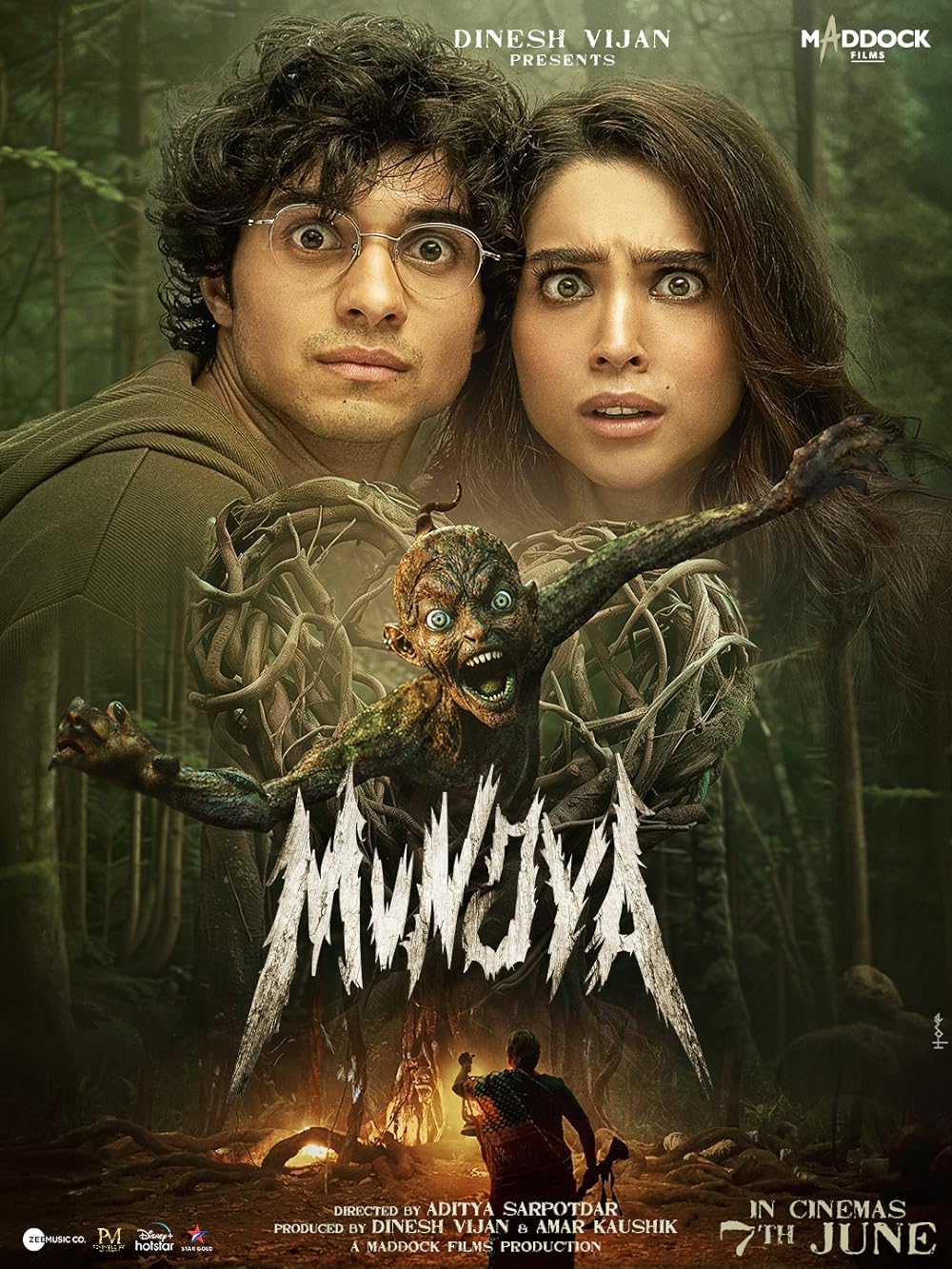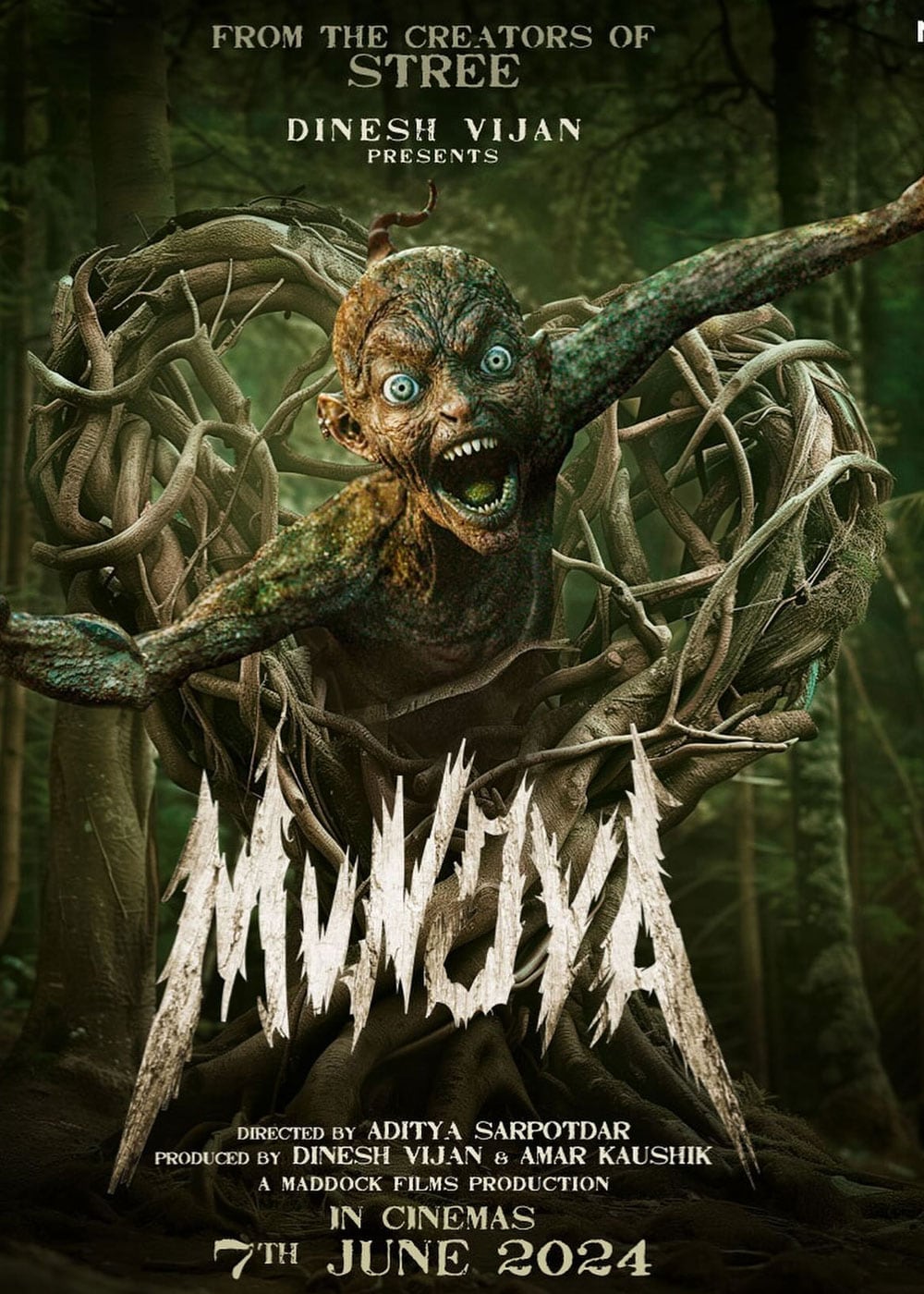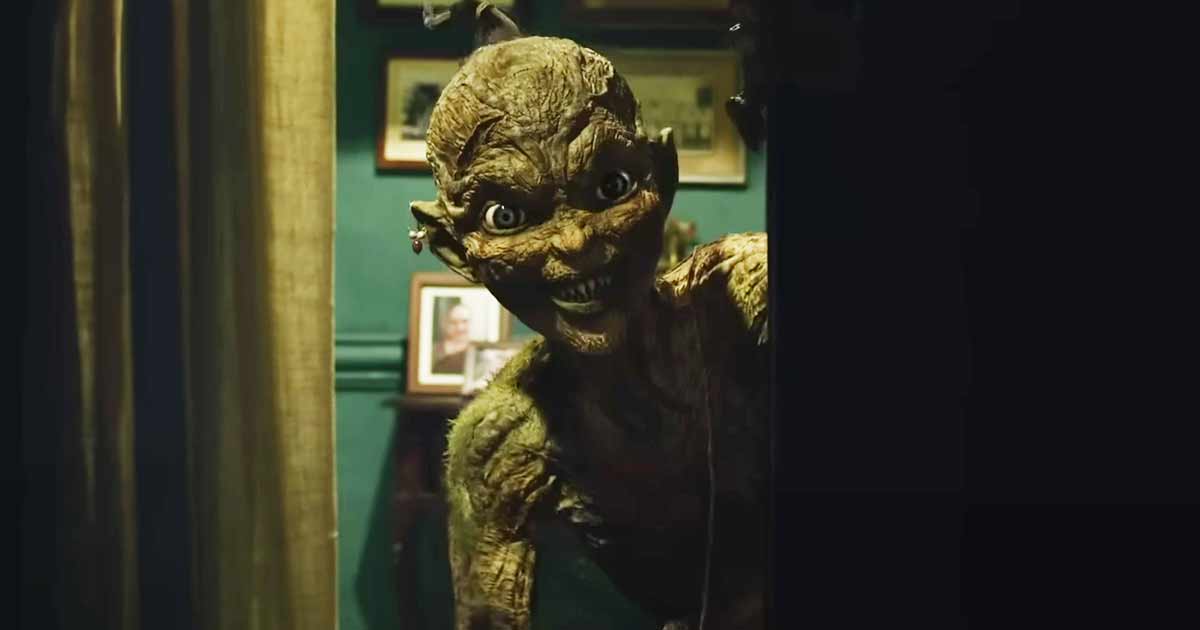Even though the viewerships of the horror and comedy genres do not overlap a lot, films like Stree and Bhediya have done a great job of fusing the two, giving viewers a satisfying combination.
Unfortunately, Munjya falls short in providing laughs or sparking the curiosity to look under your seat, despite its heavy use of frightening moments and CGI monsters.
Unfortunately, Munjya falls short in providing laughs or sparking the curiosity to look under your seat, despite its heavy use of frightening moments and CGI monsters. Drawing from a Konkani folktale that employs the myth of the “Munjya“, it endorses the deeply embedded patriarchal portrayals of women that are routinely featured in horror films.
The premise of the plot of Munjya
A young boy named Gotya wants to marry Munni, an older woman when the story opens in 1952. He conducts rituals in the jungle despite his family’s disapproval to woo her, but sadly dies and is buried beneath a tree. Bittu, a college student in Pune in the current time, works at a salon alongside his mother Pammi and spends precious time with his grandmother Aaji.
Bittu harbours affection for Bela, his childhood friend who is currently seeing an Englishman by the name of Kuba. Bittu is haunted by nightmares and hears voices from Munjya’s spirit living in a peepal tree. In their ancestral village, Bittu discovers family secrets with the help of his mother and grandmother. This leads to unforeseen and humorous events when he gets involved with Munjya.
The overall performances in Munjya
Abhay Verma is a perfect fit for the role, striking the right balance between vulnerability and bravery. The dynamic between Bittu and Munjya is endearing but unsettling, and Bittu’s witty sidekick Diljit adds humour when needed.
In the initial segment, Sharvari delivers a solid performance, but it is in the latter part where she truly excels. Mona Singh’s portrayal as a nurturing mother figure is nothing short of mesmerising, as she effortlessly combines impeccable comedic timing with a touch of Punjabi charm that captivates viewers.
The victimisation of the female characters
In Munjya, a young boy who has an unwavering love for an older woman turns into a vengeful spirit, exploring themes of victimisation and submissiveness. The female characters in the film are portrayed as needing to be saved from the dark side of the world; they are delicate and passive.
The female characters in the film are portrayed as needing to be saved from the dark side of the world; they are delicate and passive.
In an attempt to win back his beloved Munni, the evil Munjya pursues Bittu, but in the end, he starts to feel something for Bela. The narrative centres on Bittu and his companions as they band together to save Bela, a symbol of the struggle between the role of the submissive woman and the vengeful spirit. In order to appeal to men, the film adopts a patriarchal stance by objectifying female characters and using victimisation and violence against them.
The toxic notions of passiveness are amply demonstrated in the scenes where Bittu must save Bela from the supernatural spirit after she is rendered defenseless against it. Munjya illuminates the detrimental consequences of conventional gender roles in films, stressing how they support the idea of active male and passive female roles and sustain violence against women.
The tale of obsession shown through the means of exorcism and patriarchy
The entire world of poisonous supernaturalism that Munjya explores is based in the small Konkan village of Chiplun, where a young child named Gotya faces his mother’s wrath for his unwavering love for Munni, a village girl. Gotya’s pain is exacerbated when Munni marries someone else. Gotya has to have his Munjya (sacred thread) ceremony. Because of his ferocious obsession with Munni, Gotya explores the sinister realm of black magic, which has tragic results and turns him into the evil Munjya.
The film explores the age-old story of women being punished for their existence through a chilling blend of mythology and horror. Munjya’s plot is a clear testament to the toxic objectification and predatory behaviour that are frequently glorified in horror films to present them as respectable social norms that aim to stifle female autonomy and desire. Exorcism plays a sinister role in the story, not only as a means of driving out supernatural beings but also as a means of controlling and subjugating women who dare to embrace their uniqueness and desires.
Munjya falters in both humour and horror
The CGI character in the horror-comedy film could have had a voiceover that was better suited to the genre. Co-written by Yogesh Chandekar and Niren Bhatt, the screenplay comes across as hurried and shallow. Munjya starts off with a captivating scene as it follows Bittu and his family in their ancestral village, where they meet the enigmatic Munjya, who causes terrible things to happen.
Afterwards, though, the film loses quality. While the tension generated by ominous elements is a compelling feature of science fiction, Munjya’s evil is overdone to the point of irritation rather than terror, which lessens the story’s overall impact.
The only thing worth seeing once is Munjya‘s performances. Numerous lesser-known actors appear in the film, and they’re all excellent in their parts. In particular, Suhas Joshi should be commended for her role as Bittu’s grandmother.
Through its horrible plot, Munjya depicts a toxic sense of love, obsession, possession, black magic, and horror—all of which are intimately connected to the various facets of women’s subjugation at the hands of patriarchy.
Through its horrible plot, Munjya depicts a toxic sense of love, obsession, possession, black magic, and horror—all of which are intimately connected to the various facets of women’s subjugation at the hands of patriarchy. It is hilarious how poisonous supernaturalism is attempted to be hidden under the guise of comedy and horror, in Munjya, a film which falls flat in its quest to frighten or amuse people.








